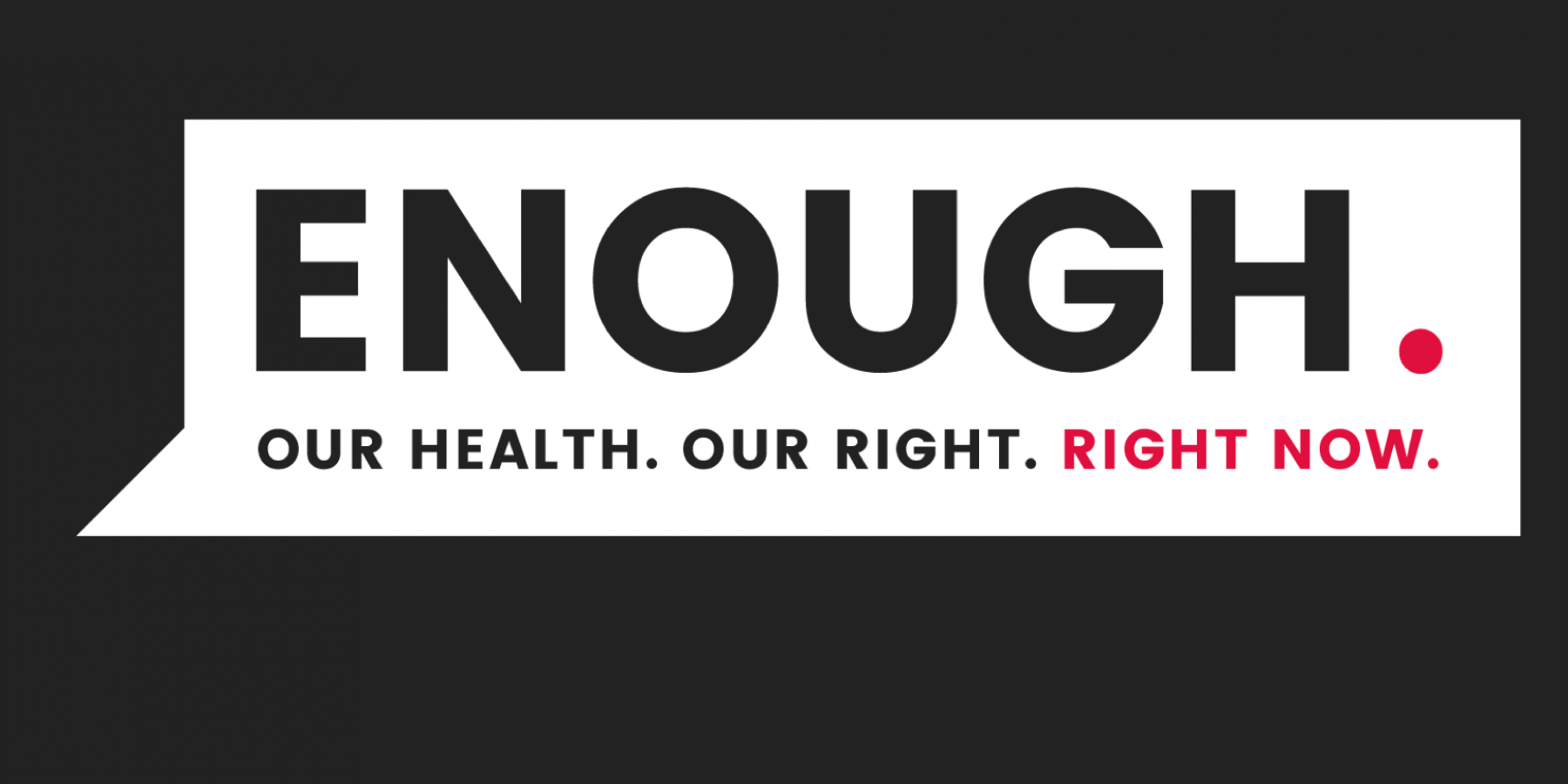NCDs: We have had enough. Have you?
28th March 2018

28th March 2018
Governments failed to heed warnings in 2011, when the first High-Level Meeting (HLM) on NCDs took place – and again at the second HLM in 2014 – that NCDs were overtaking communicable diseases as the world’s greatest threat to health. As a result, the trajectory of death and disability from NCDs has remained unchanged and the world is off track to meet the Sustainable Development Goal target of reducing premature mortality from NCDs by one-third.
In September 2017, the WHO released the latest progress monitor report on NCDs. The results were alarming: less than half of member states had put in place effective systems to fight these diseases. Shortly after, NCD Alliance CEO Katie Dain described governments as “sleepwalking into a sick future”.
Frustration has escalated among those who have been working for years in the fight against NCDs. At the second Global NCD Alliance Forum last December, academics and NCD champions from civil society called loudly for change:
“We need an edgy campaign.”
“We need a grand march of indignation and hope.”
“We need a campaign that speaks of a sense of urgency to act, that highlights the injustice of NCDs. A campaign which includes people.”
“NCDs affect human beings whose lives matter. This is a global crisis that needs to be addressed urgently, and it is solvable.”
Fuelled by frustration and in anticipation of this year’s third HLM on NCDs, the NCDA kicked off a nine-month process to shape our campaign approach, in close collaboration with our civil society network. There were meetings, brainstorming sessions, flip charts and felt-tip markers, mood boards, and email and teleconference consultations. Numbers, words, statistics, feelings, sounds, stories, hashtags and taglines swirled.
Finally, the consensus was clear. While many in our network still hoped that this HLM would be a turning point for NCDs, they were also deeply exasperated by the glacial rates of progress since 2014. In the interim, millions of people globally, not least in low- and middle-income countries, have endured an increasing burden of deaths and disability from NCDs, in many cases that could be better managed or prevented.
The shared sentiment was that everyone had had Enough. That would be our message.
“It’s powerful. It’s a rallying cry… but it’s not positive,” we heard. Indeed, that’s the problem. We would love to campaign around wins and achievements and celebrate progress, but faced with government indifference to this devastating epidemic that increasingly darkens lives like an unceasing hurricane, we have no choice but to demand urgent action.
Solutions to curb the NCD pandemic are widely known. In global health jargon, we call them “WHO best buys”: Tax unhealthy products like alcohol and sugar sweetened beverages, adopt universal health coverage, reduce salt intake, ban smoking public places… The positive impact of such measures on health has been extensively documented by academics and public health specialists.
We demand an end to delays in investing in NCD prevention and control and putting life-saving measures into practice. The highest attainable level of health and well-being is a fundamental human right. But today, many people globally are living with conditions that prevent them enjoying that right. Many more could be living with a much higher standard of health through better and more affordable access to treatment and care, and health-promoting environments that ensure it is easier to be healthy than sick.
The unacceptable rate of premature deaths from NCDs reflects governments’ inadequate attention, action and commitment to the fundamental right to health. As a result, we are calling on governments to move beyond rhetoric, and to commit to and deliver concrete and assertive action, now, in 2018.
The ENOUGH campaign focuses on a set of priority calls to action for governments:
Civil society is mobilised, together with millions of people living with NCDs around the world, demanding that governments rise to the challenge, do the right thing and put people first. Now.
Today we have launched the campaign with a set of visual resources for integrating into advocacy efforts in French, Spanish, Arabic, Russian and English. In the coming weeks we will be launching a campaign website (www.enoughncds.com) filled with opportunities for you to participate in raising awareness, advocating for action and sharing your views and your voice. We encourage you to stay tuned, and when the site goes live, please engage, interact and share.
Bookmark enoughncds.com.
In the meantime, we already have resources available to support advocacy: Find out more about NCDs, the 2018 UN HLM on NCDs, NCD Alliance’s campaign priorities (overview and infographics), read the UN Secretary General’s report on NCDs and more here.
The quickest and easiest thing for you to do today is share the tweet below by clicking on the link, or going to our twitter, facebook or instagram accounts and following, liking and sharing the pinned posts promoting ENOUGH. You can also follow the links to the campaign video and share it through social media.
What have you had enough of? #NCDs #enoughNCDs enoughncds.com [click here to tweet]
We have had enough. We must be clear and unified in action. Together we are stronger - we can and we will beat NCDs.
Have you also had enough? Join us. #EnoughNCDs
Lucy Westerman (@lewest) is Senior Policy and Campaigns Officer for the NCD Alliance (@ncdalliance). Lucy works across the team to develop and co-ordinate delivery and promotion of NCDA’s global campaigns, bridging the work of the advocacy and communications teams. Lucy specialises in NCD prevention and health promotion, particularly looking at social, commercial and environmental determinants on health. Lucy's work focuses on NCDA’s online communications and engagement, and leads NCDA’s prevention policy and advocacy work-stream, with particularly priority on risk factor areas - namely alcohol control, physical activity, nutrition and cross-risk factor issues and collaboration.